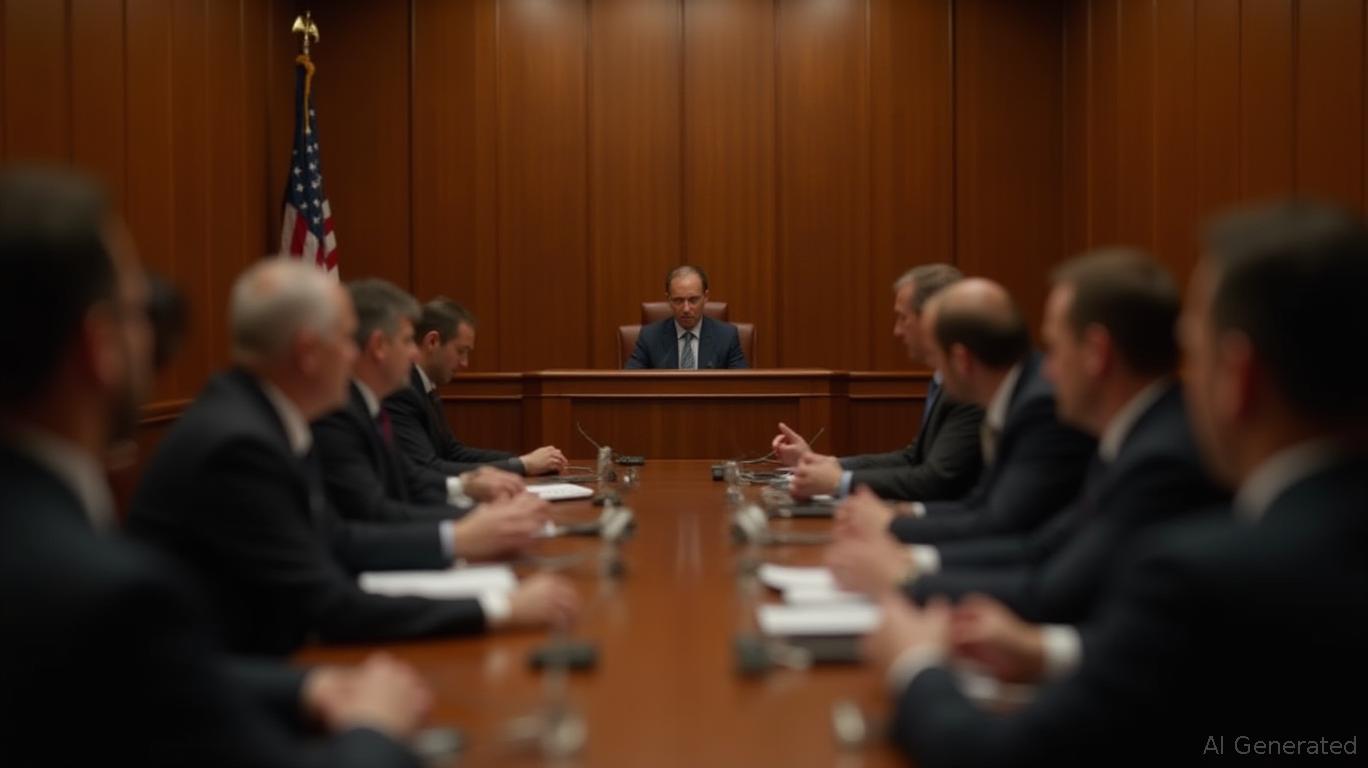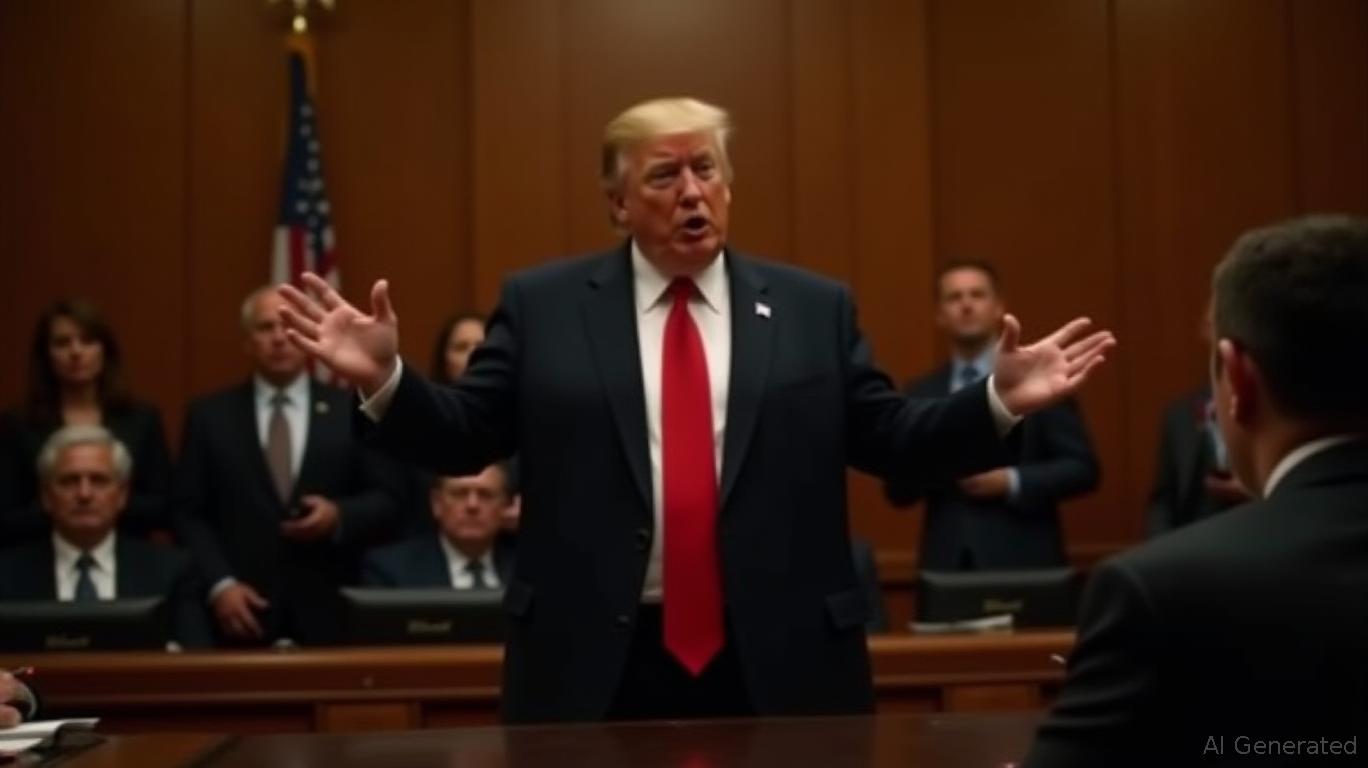Federal Authority Versus State Regulations in Kalshi's Legal Case in New York
- KalshiEX sues New York to block state enforcement of its sports-event contracts, claiming federal commodity futures laws preempt state jurisdiction. - The case follows mixed legal outcomes in Nevada, New Jersey, and Maryland, where courts have both granted and denied preliminary injunctions favoring Kalshi. - Legal experts highlight Kalshi's strategy to frame disputes in federal preemption rather than gambling legality, avoiding state-specific regulatory debates. - A favorable ruling could enable nationw
KalshiEX LLC has intensified its dispute with state authorities by initiating a federal lawsuit in New York, aiming to prevent the state from applying its gambling regulations to the platform’s sports-related prediction contracts. Filed in the U.S. District Court for the Southern District of New York, the suit contends that federal law supersedes state authority over Kalshi’s products, which the company describes as commodity futures contracts regulated at the federal level, according to
The New York State Gaming Commission issued its cease-and-desist letter on October 24, alleging that Kalshi was running an unauthorized sports betting service, according to

Kalshi’s legal tactics have met with varied outcomes. Courts in Nevada and New Jersey granted preliminary injunctions in Kalshi’s favor, finding that CFTC oversight likely overrides state law. However, a Maryland judge recently refused a similar request, stating it was “highly unlikely” that Congress meant to displace state gambling rules, according to
Legal analysts believe Kalshi’s proactive lawsuits are a strategic choice. Daniel Wallach, an attorney specializing in sports betting, explained that most states require prior notification before suing businesses for repeated infractions, which allows Kalshi to present its arguments in federal court first. By centering its case on federal preemption rather than debating whether its products are gambling, Kalshi sidesteps more controversial issues. Nevertheless, states including Arizona, Illinois, and Massachusetts have also issued warnings or filed lawsuits, indicating a broader regulatory pushback, as
The results of these legal battles could reshape how prediction markets are regulated. If Kalshi prevails, it could operate across the country under federal supervision, possibly paving the way for other regulated competitors. If the states win, prediction markets would have to comply with a patchwork of state rules, offering contracts only where sports betting is allowed. The dispute could ultimately be decided by the Supreme Court, as lower courts continue to wrestle with the balance between federal and state control over financial derivatives.
While defending its business model, Kalshi faces practical obstacles. Blocking users in states like New York—where monthly sports betting volume reaches $2.29 billion—could be financially damaging. At the same time, prediction markets are gaining mainstream attention, with New York mayoral candidate Zohran Mamdani referencing Kalshi’s odds during a campaign event. The ongoing case highlights both the increasing prominence of prediction markets and the unresolved questions about their regulatory future.
Disclaimer: The content of this article solely reflects the author's opinion and does not represent the platform in any capacity. This article is not intended to serve as a reference for making investment decisions.
You may also like
IBM Unveils Dfns-Backed Digital Asset Custody Platform for Enterprises
Revolutionizing Financial Institutions: A Comprehensive Solution for Blockchain Transaction Management and Settlement

Grokipedia’s AI Approach Poses a Test to Wikipedia’s Human-Driven Objectivity
- Elon Musk's xAI launched Grokipedia, an AI-driven encyclopedia challenging Wikipedia's neutrality with real-time data and Grok chatbot integration. - The platform faced launch crashes and criticism for ideological bias, with 885,000 articles adapted from Wikipedia but re-framing topics like slavery and transgender issues. - Wikipedia defends human-curated transparency while Grokipedia's AI moderation model sparks debates over AI's role in shaping historical and scientific narratives. - Analysis shows 70%

X Layer's Mainnet Enhancement Aims to Establish Enterprise-Level Blockchain Excellence
- X Layer announces mainnet upgrade on Oct 27, 2025, to boost performance and scalability for enterprise blockchain leadership. - The upgrade will temporarily halt services like OKX transactions, urging users to prepare for disruptions. - Amid industry trends and legal challenges, X Layer aims to compete with Ethereum and Solana through protocol optimizations. - Market dynamics include regulatory scrutiny and corporate lawsuits, highlighting interconnected financial-tech sectors. - Post-upgrade, X Layer fa

Trump's legal challenge portrays the New York case as driven by political motives and questions the state's legal authority
- Trump's legal team appeals 2024 hush money conviction, claiming "fatally marred" legal errors and political bias in New York state court proceedings. - Appeal challenges jurisdiction, argues federal law preempts state charges and demands recusal of Judge Merchan over alleged conflicts of interest. - Prosecution faces criticism for stacking time-barred misdemeanors and using presidential communications as evidence, contradicting Supreme Court immunity rulings. - Case tests presidential immunity boundaries
